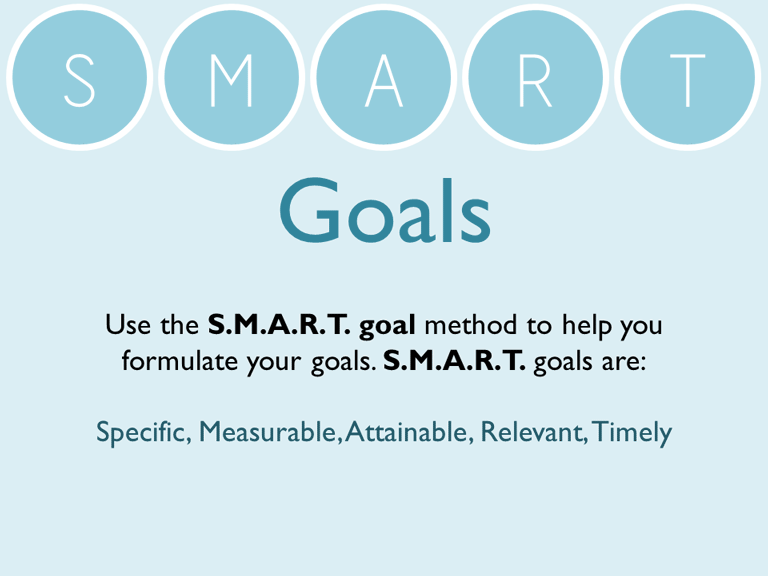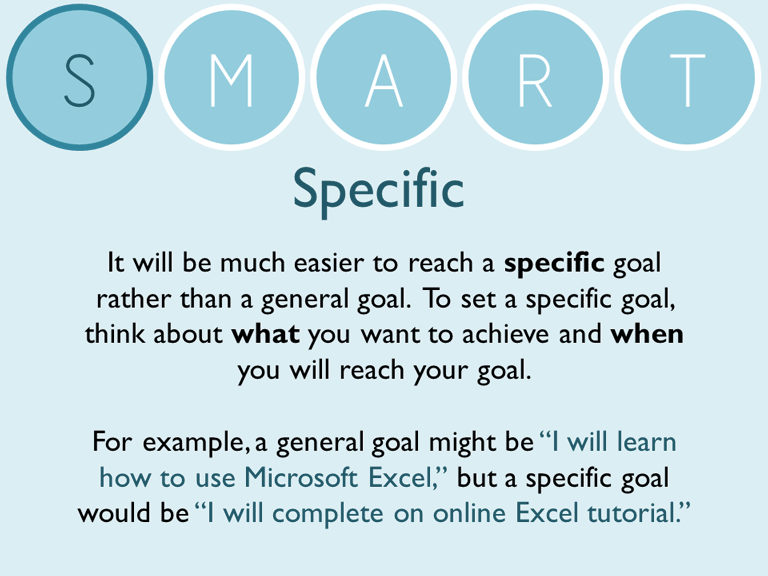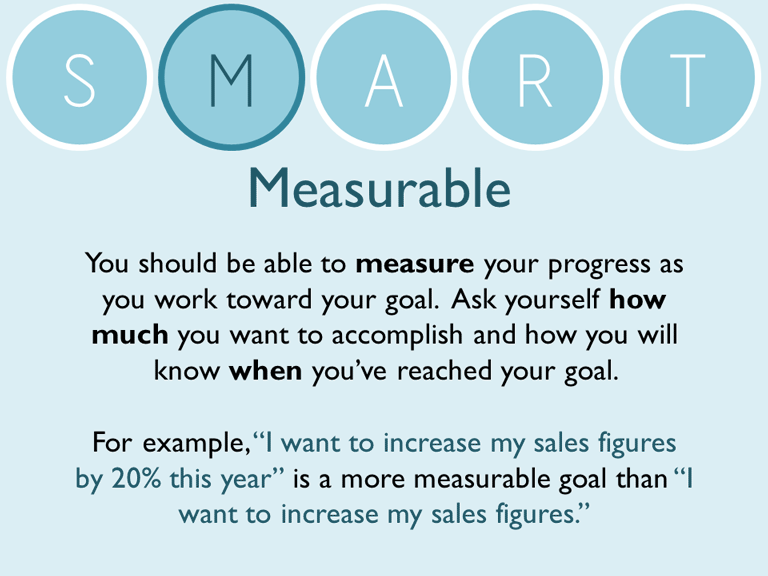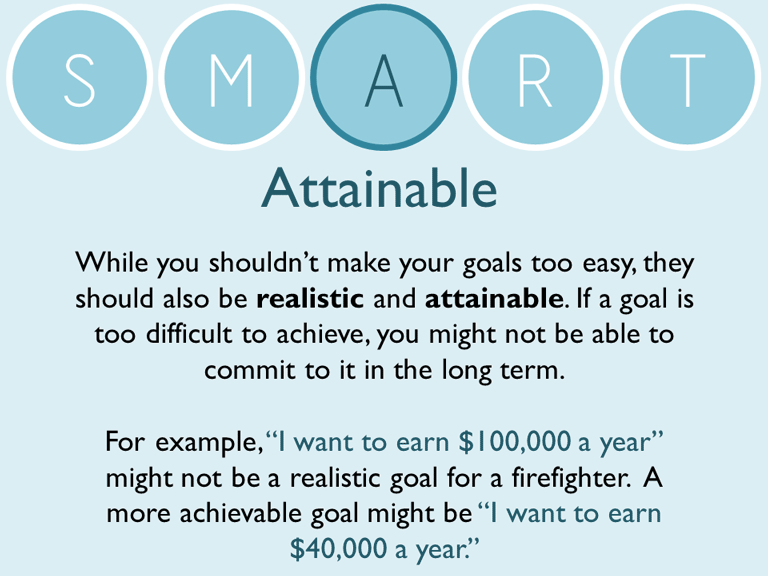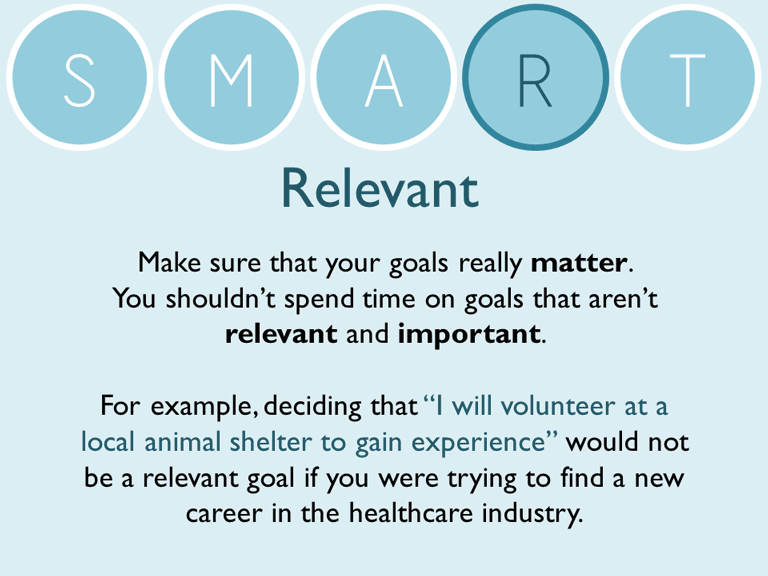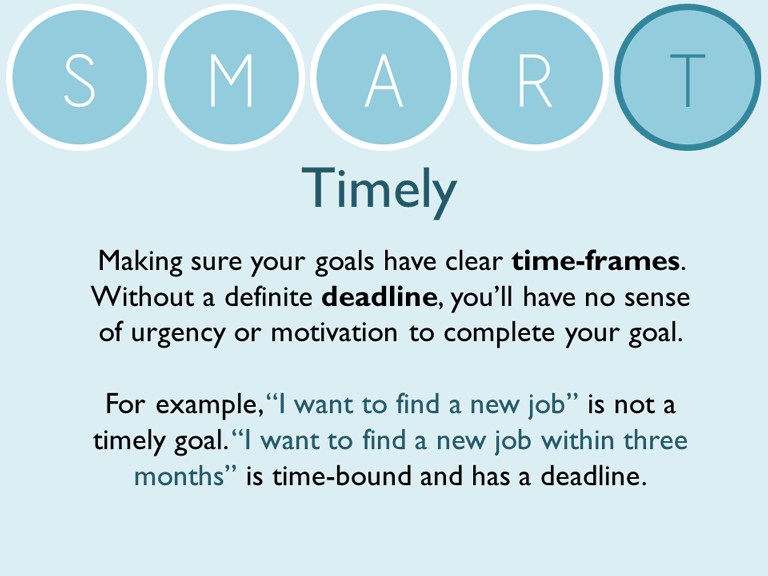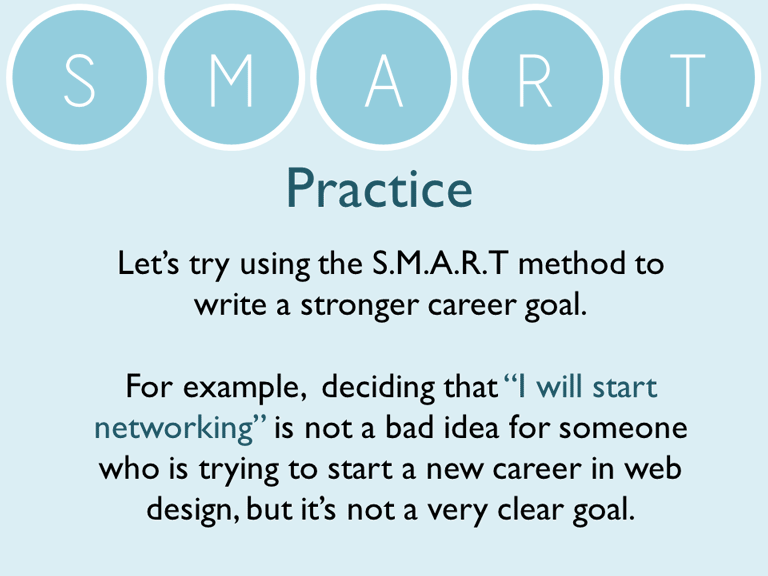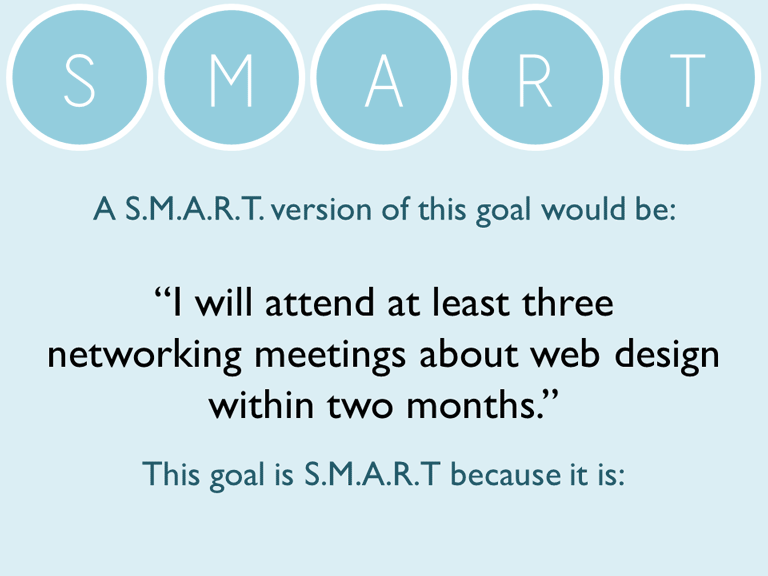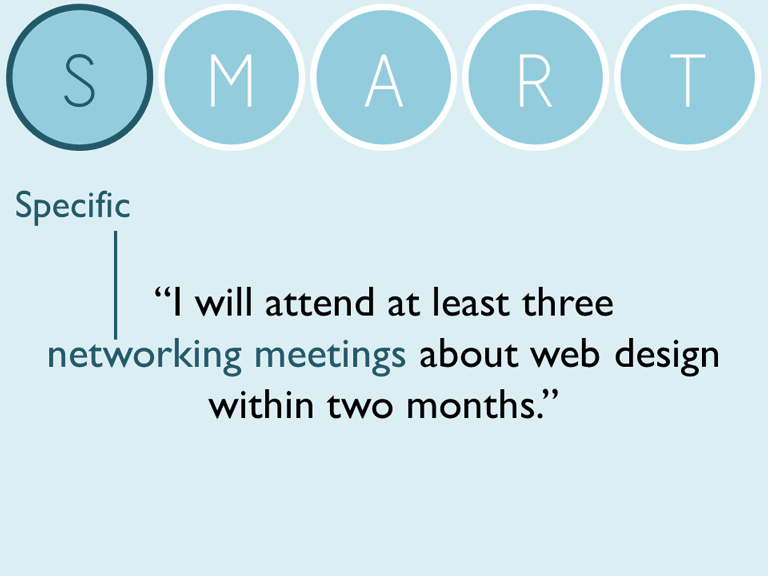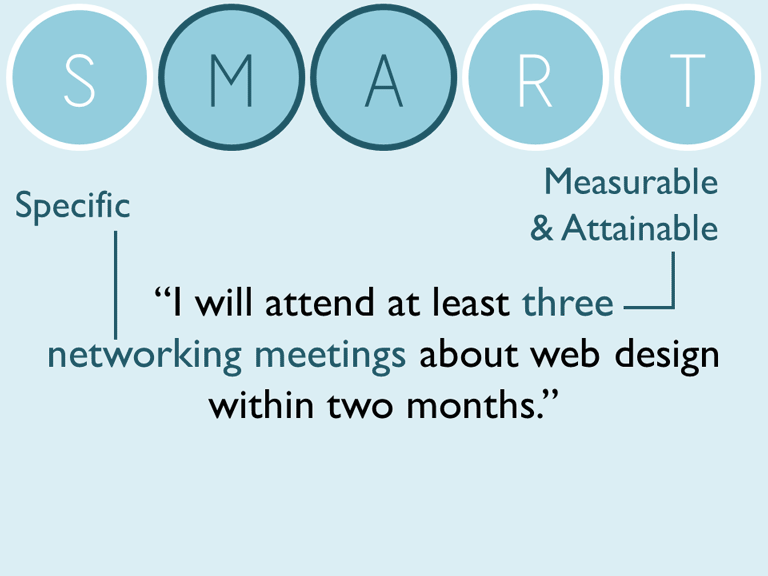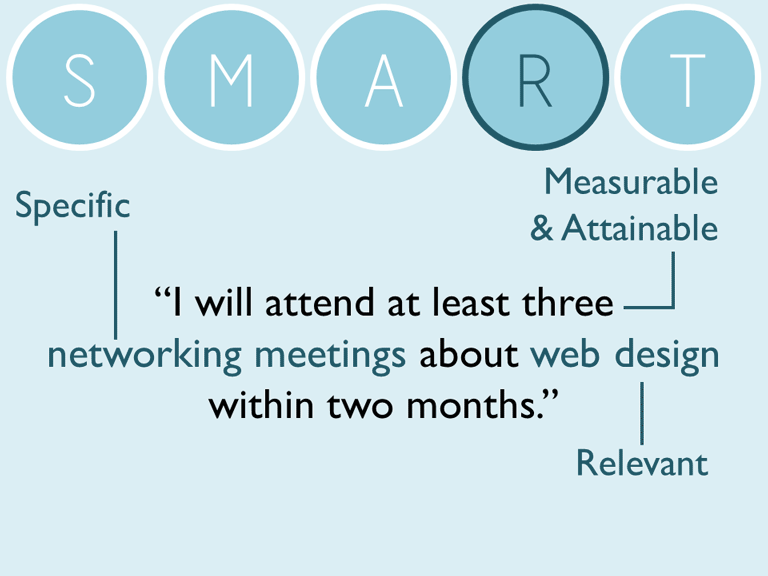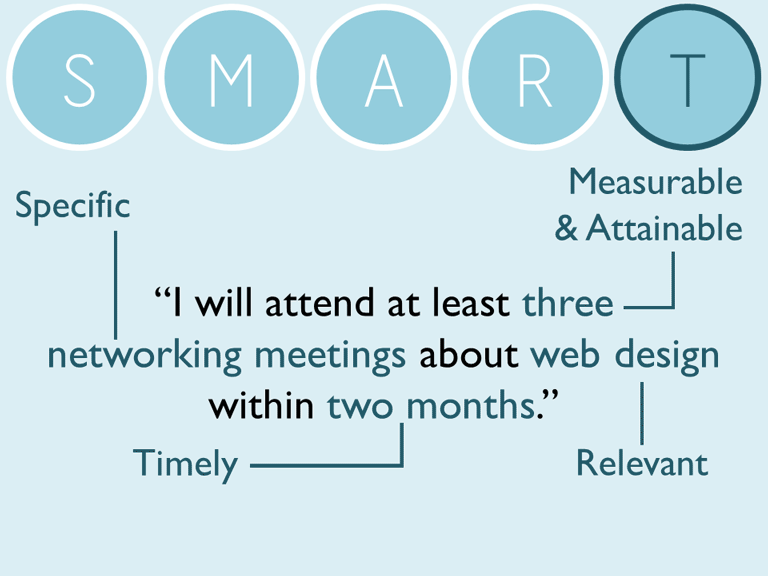Career Planning and Salary
Make a Career Plan
Setting career goals
Now that you have a better idea of what you need to reach your career objective, you will want to create some career goals. Setting definite career goals will help you stay on track as you progress toward your career objective. Your goals will vary based on your objective, but below are some examples of different career goals:
- Secure at least three job interviews with local law firms in the next three months
- Interview two people about what it's like to work in marketing within five weeks
- Gather five impressive writing samples for an online portfolio by the end of the month
- Become proficient with Microsoft Word and Excel within six months
While it's important to set meaningful career goals, you might become discouraged if these goals are too difficult to achieve. Try using the S.M.A.R.T. goal method to help you create realistic and attainable career goals.
Click the arrows in the slideshow below to learn more about how to write S.M.A.R.T. goals.
Creating a career plan
Once you have created a career objective and have formulated your career goals, you should have a clearer idea of the career path you want to follow. Drafting a career plan will help you figure out exactly what you need to pursue your chosen career.
Download the Career Planning Worksheet ( .doc  or .pdf
or .pdf  ) and follow along to create your own career plan.
) and follow along to create your own career plan.
- Outline your career objective.
- Write several different goals using the S.M.A.R.T. goals method.
- Create a timeline or use a calendar to keep track of your goals.



